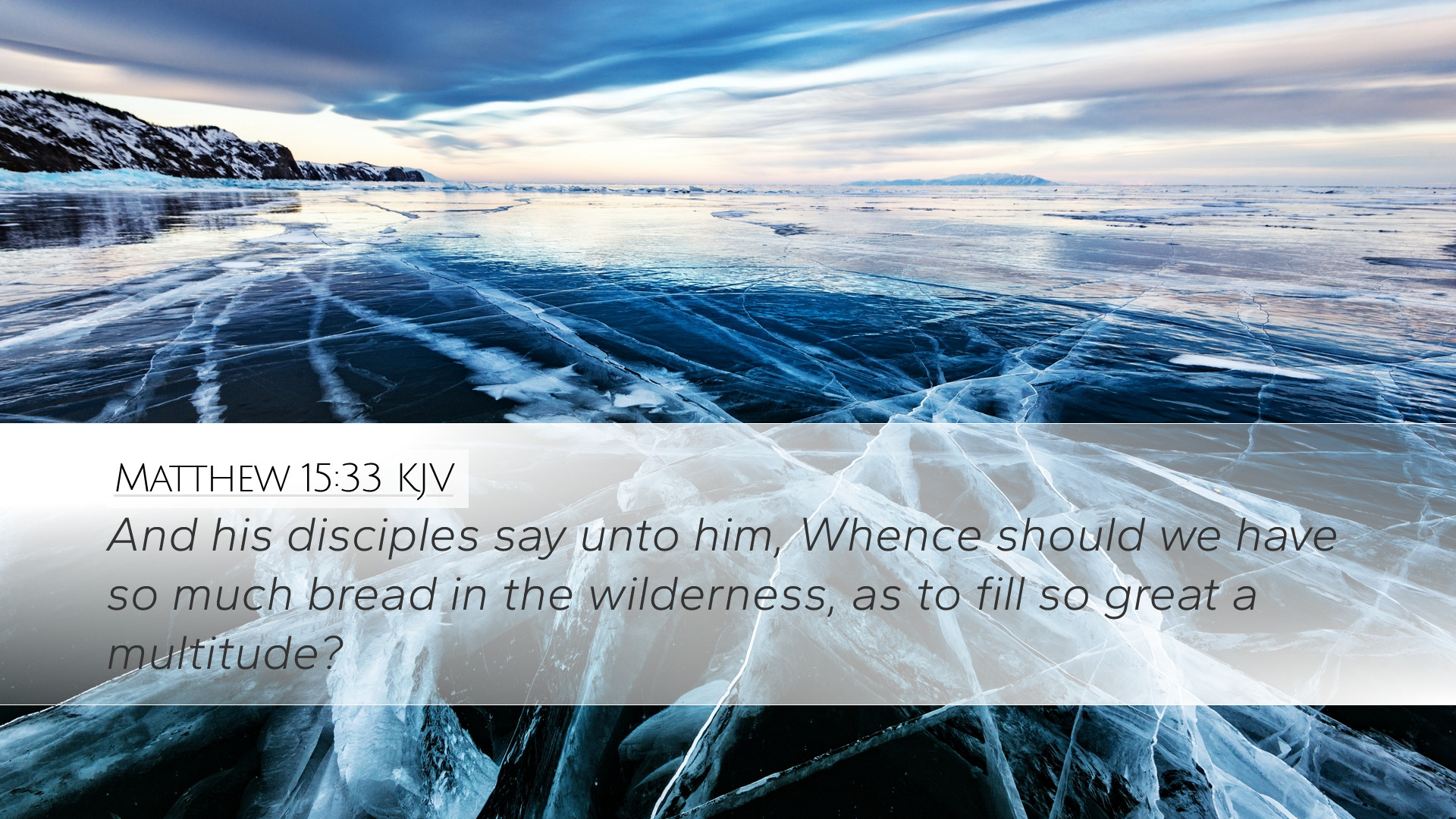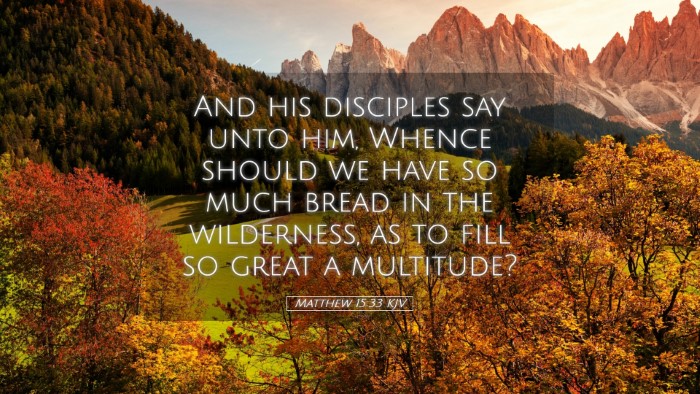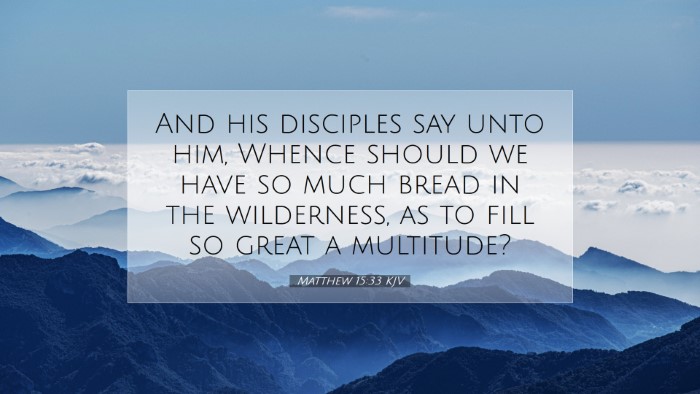Bible Commentary on Matthew 15:33
Matthew 15:33 states: "And His disciples said to Him, ‘Where could we get enough bread in the wilderness to fill such a great multitude?’" This verse captures a moment of doubt among the disciples, who are faced with the significant challenge of feeding a large crowd in a remote location. Their question reflects both practical concerns and deeper spiritual lessons.
Contextual Overview
To fully grasp the weight of this verse, it is vital to understand its context. This passage takes place during Jesus' ministry, characterized by His miraculous acts and teachings. Following the feeding of the 5000, as recorded earlier in Matthew, the disciples find themselves again faced with a similar predicament: a multitude is gathered, hungry, and miles away from civilization.
Commentary Insights
This verse has generated numerous interpretations and reflections in public domain commentaries, and here we summarize notable insights from prominent theologians.
Matthew Henry's Commentary
Matthew Henry emphasizes the exposure of the disciples’ doubts. In his reflection, he poses the question of their faith amid adversity. Rather than immediately recalling Christ’s previous miracle of feeding the 5000, they display a lack of confidence in His ability to provide. Henry underscores that this moment illustrates the human tendency to forget previous blessings during new trials.
Albert Barnes’ Notes on the Bible
Albert Barnes examines the practical implications of the disciples’ question. His commentary highlights the logistical challenges faced in the wilderness and recognizes the difficulty of feeding 4000 people with limited resources. Barnes notes that the disciples’ inquiry is rooted in a realistic assessment of their situation, yet it also reflects a significant disconnection from Jesus' power and precedents.
Adam Clarke’s Commentary
Adam Clarke approaches this passage from a theological perspective, focusing on faith and divine provision. He suggests that the disciples missed an opportunity to express faith in Jesus’ miraculous capabilities. Clarke points out that the wilderness setting serves as a metaphor for spiritual barrenness, where human efforts alone are inadequate. It invites believers to trust in God’s provision, even when circumstances appear bleak.
Spiritual Lessons
This verse serves as a practical reminder for Christians regarding faith and trust in divine provision. Here are several insights that can be drawn:
- The Nature of Human Doubt: Even the closest followers of Christ can struggle with disbelief when faced with significant challenges.
- Divine Provision: God’s ability to supply our needs is not limited by our circumstances. Just as He provided in the past, we can trust Him for the future.
- Faith in Action: Responding to challenges with faith instead of doubt is central to the Christian experience. Believers are called to remember God’s past faithfulness when facing present crises.
- Community Needs: The gathering crowd represents not just physical hunger but spiritual needs, which the church is called to address through faith and action.
Conclusion
Matthew 15:33 presents a lesson in faith and reliance on God in seemingly impossible situations. The insights from various commentaries serve as reminders of our human frailty and the divine promise to provide. For pastors, students, theologians, and scholars, this passage encourages a deeper exploration of faith, trust, and the witnessing of God's miraculous works through Christ. The narrative urges us to be aware of the interplay between human limitations and divine capabilities, calling us to embody faithfulness both as individuals and as a community of believers.


